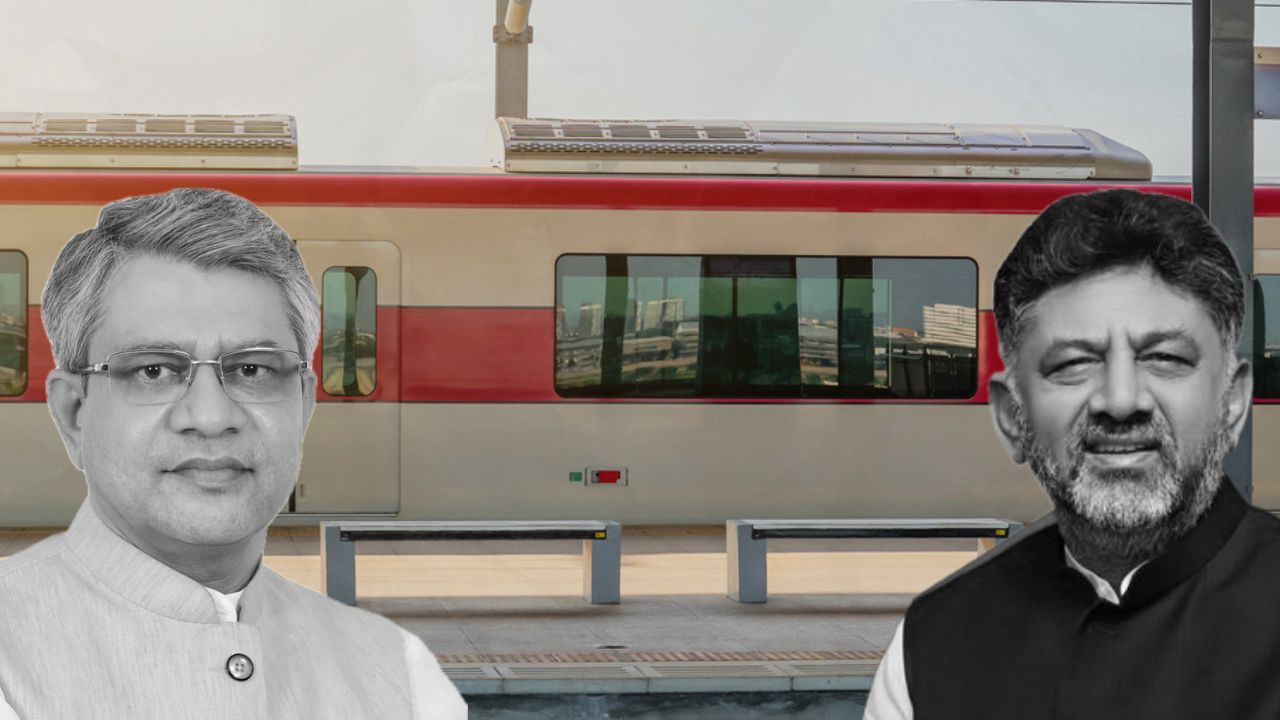The BSRP is a 149.34 km commuter rail network aimed at easing Bengaluru’s chronic traffic congestion and providing a sustainable public transport system. The project has been sanctioned at a cost of ₹15,767 crore, with 20 percent funding each from the Union government and the Karnataka government, while the remaining amount (approximately ₹6,800 crore) is financed through debt.
Published Mar 19, 2025 | 10:07 PM ⚊ Updated Mar 19, 2025 | 10:07 PM

Synopsis: Union Railways Minister Ashwini Vaishnaw blamed the delays in the Bengaluru Suburban Railway Project to the slow transfer of land by the Karnataka government, as well as the absence of a full-time Managing Director. The ₹15,767 crore project, aimed at easing Bengaluru’s traffic congestion, began in 2022 and is expected to see its first corridor completed by 2027.
Union Railways Minister Ashwini Vaishnaw has blamed delays in the Bengaluru Suburban Railway Project (BSRP) on slow land transfers by the Karnataka government.
Responding to a question from Bharatiya Janata Party leader and Bengaluru MP Tejasvi Surya in Parliament on Wednesday, 19 March, he said:
“Indian Railway has transferred the railway land to Karnataka Rail Infrastructure Development Company Limited (K-RIDE), a Company controlled by State Government of Karnataka for the project however progress of transferring of State Government land is very slow.”
The minister also pointed to a lack of full-time leadership as a reason for the delay.
“Currently, a part-time Managing Director (MD) appointed by the Karnataka government is overseeing the project. There is a need for appointing a full time MD who is conversant with railway technology,” he added.
He further highlighted several other factors affecting progress, including “forest clearance by officials of forest department, shifting of infringing utilities, statutory clearances from various authorities, geological and topographical conditions of area, law and order situation in the area of project/s site, number of working months in a year for particular project site due to climatic conditions etc. All these factors affect the completion time of the project/s.”
Representatives of the Karnataka government were unavailable for comment at the time of publication.
The BSRP is a 149.34 km commuter rail network aimed at easing Bengaluru’s chronic traffic congestion and providing a sustainable public transport system. The project has been sanctioned at a cost of ₹15,767 crore, with 20 percent funding each from the Union government and the Karnataka government, while the remaining amount (approximately ₹6,800 crore) is financed through debt.
The project consists of four corridors:
Trains will operate on broad-gauge tracks using air-conditioned electric multiple units (EMUs), running every 5–12 minutes to ensure frequent service.
Work began in 2022, with priority given to the Mallige Line (Corridor-2) and Kanaka Line (Corridor-4) with first corridor expected to be completed in 2027.
(Edited by Dese Gowda)
